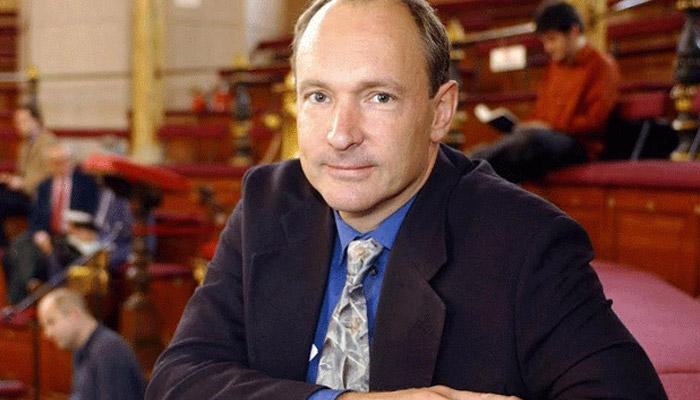Father of internet Tim Berners-Lee congratulates India on net neutrality rules
Taking to twitter, the man who invented the World Wide Web (WWW) said, “Well done India!”
Trending Photos
)
Zee Media Bureau
New Delhi: Tim Berners-Lee, the father of internet, has congratulated India on taking a firm stand and passing the net neutrality rule which bars companies from charging or offering data traffic on discriminatory basis.
Taking to twitter, the man who invented the World Wide Web (WWW) said, “Well done India!”
Well done India! passes strong #netneutrality rules, stands up for open Web. See @webfoundation -> https://t.co/CvahcQYNtd #savetheinternet
— Tim Berners-Lee (@timberners_lee) February 8, 2016
Ruling in favour of net neutrality, the Telecom Regulatory Authority of India on Monday struck down differential pricing barring companies from charging or offering data traffic on discriminatory basis.
Issuing the 'Prohibition of Discriminatory Tariffs for Data Services Regulations, 2016' that bars service providers from offerring or charging discriminatory tariffs for data services on the basis of content, TRAI said it would levy a penalty of Rs 50,000 per day on companies violating the rule.
Announcing the final guidelines on differential pricing, TRAI said that "No service provider shall enter into any arrangement or contract that has the effect of discriminatory tariffs for data services."
This move by TRAI came as a major to social networking site Facebook that had been promoting Free Basisc in India.
A disappointed Mark Zuckerberg, who reportedly spent a whopping Rs 300 crore to promote the campaign in India, said he will not give up on breaking down connectivity barriers in India which he described as an important goal for his company.
Tim Berners-Lee had, in the past, expressed his opinion against Facebook's Free Basics.
As per a report in The Guardian, Berners-Lee said that consumers should “just say no” to initiatives such as Facebook’s Free Basics.
“In the particular case of somebody who’s offering … something which is branded internet, it’s not internet, then you just say no. No it isn’t free, no it isn’t in the public domain, there are other ways of reducing the price of internet connectivity and giving something … [only] giving people data connectivity to part of the network deliberately, I think is a step backwards,” he said.
Stay informed on all the latest news, real-time breaking news updates, and follow all the important headlines in india news and world News on Zee News.
Live Tv







)
)
)
)
)
)
)
)
)
)
